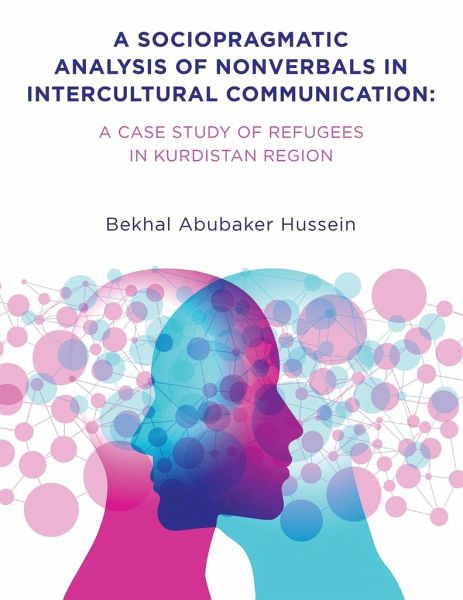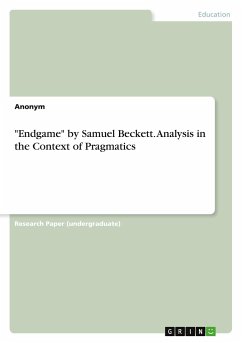
A SOCIOPRAGMATIC ANALYSIS OF NONVERBALS IN INTERCULTURAL COMMUNICATION
: A CASE STUDY OF REFUGEES IN KURDISTAN REGION
Versandkostenfrei!
Versandfertig in 1-2 Wochen
37,99 €
inkl. MwSt.

PAYBACK Punkte
19 °P sammeln!
Human communication involves more than mere linguistic expressions or the verbal messages they share in the interactions. Nonverbal behaviors not only have a critical impact on verbal ones but also may even substitute them. The sociopragmatic context and sociopragmatic competence play a significant role in the processes of using, studying, interpreting, and analyzing nonverbal cues, especially in intercultural communication. There has been some uncertainty as to whether or not nonverbal cues influence intercultural communication, particularly among refugees, in addition to the impact of sociop...
Human communication involves more than mere linguistic expressions or the verbal messages they share in the interactions. Nonverbal behaviors not only have a critical impact on verbal ones but also may even substitute them. The sociopragmatic context and sociopragmatic competence play a significant role in the processes of using, studying, interpreting, and analyzing nonverbal cues, especially in intercultural communication. There has been some uncertainty as to whether or not nonverbal cues influence intercultural communication, particularly among refugees, in addition to the impact of sociopragmatic contextual variables such as age, gender, ethnicity, and religion on the process of communication. This study's content originates from the diverse culture-based difficulties and challenges refugees face in the communication process among themselves and with the host community or humanitarian agencies. Thus, it recommends cooperating, nationally and internationally, to establish peace and security to reduce the number of refugees and decrease their suffering. Eventually, it suggests holding international, regional, and national scientific conferences to study the temporary and future consequences of refugeeism on humanity.












